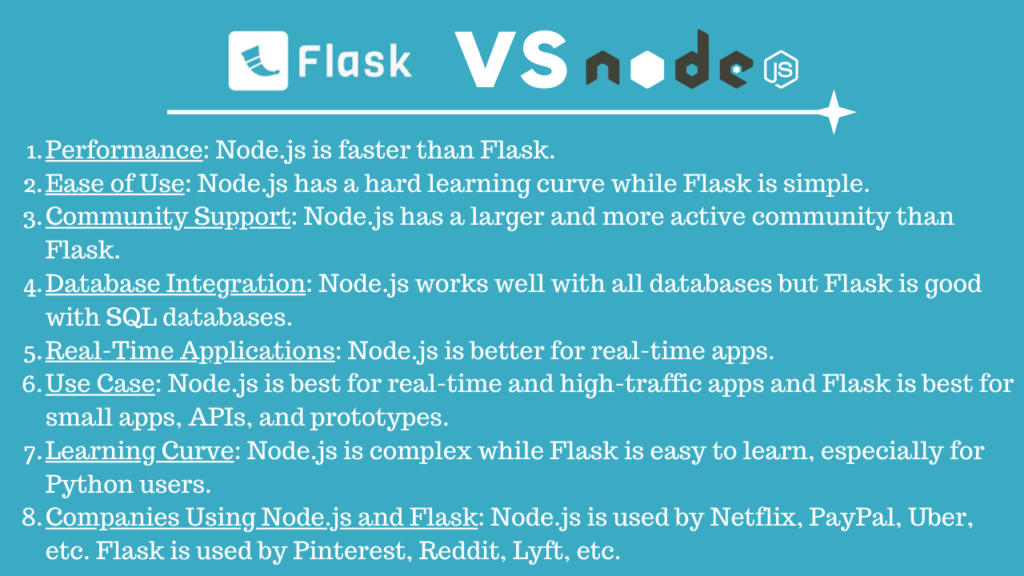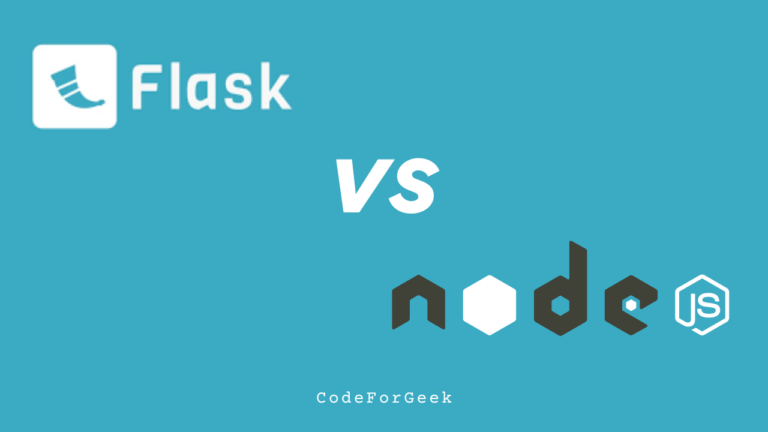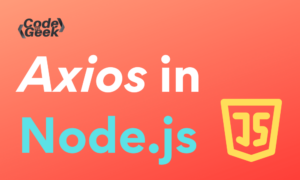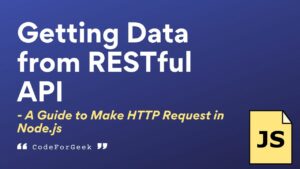Recently our team was planning to build a web application and we were quite confused about which technology to use. Everyone has different opinions on this, based on whether they are good at Python or JavaScript. Python lovers always choose Flask and JavaScript lovers choose Node.js. So I felt like writing a short but informative tutorial that compares both these technologies and provides good guidance on choosing one. Let’s look at some details of both before we start comparing them.
What is Node.js?
Node.js is a runtime environment built on the Chrome V8 engine that compiles JavaScript and converts it to native machine code. It has a non-blocking I/O paradigm making it perfect for developing real-time web apps, chat applications, and other applications that need real-time interaction.
Developers use JavaScript to write client-side code, now they can use the same language to write server-side code using Node.js. Using the same language for both the front end and the back end will result in high productivity and efficiency because there is no language switching needed.
What is Flask?
Flask is a framework for Python for building web applications. It is super lightweight and does not require any additional libraries other than those that come built-in with Python.
Just like Node.js supports third-party libraries using NPM and Yarn, Flask supports extensions to add various functionalities like database integration, form validation, user authentication, etc, which makes it an excellent choice for beginners. Flask is good for RESTful APIs or small-sized applications and it is extremely easy for you to use if you already know Python.
Difference Between Node.js and Flask

1. Performance
Node.js is popular for its performance. Its non-blocking, event-driven architecture and V8 engine make it super fast and enable it to handle multiple concurrent connections simultaneously with fewer resources.
On the other hand, Flask is good for traditional web applications but if you are creating some heavy application it may not perform well which Node.js easily does. So Node.js is the winner in terms of performance.
2. Ease of Use
Node.js is hard to use and it is quite obvious as it is a low-level runtime environment so it requires a lot of setup and configuration, whether it is writing boilerplate code, building a basic server or even creating mandatory files like package.json, you have to do all yours. Node.js is a world in itself where people using it can build anything but require a lot of skills. Also since it is asynchronous, it can be complicated for beginners.
Flask on the other hand is simple, and if you already know Python you can master it in a few days. It is a straightforward framework that provides the majority of features on its own or via extension so it’s good for beginners.
3. Community Support
Node.js has a very large and active community with lots of resources, documentation and tutorials available for free on the Internet. Flask also has an active community and resonance but not like Node.js. Node.js itself is a community kind of tech, people create libraries, put them on NPM, other people use them, and give their opinions, and these make the community even bigger. Node.js has a huge fanbase.
4. Database Integration
In terms of database connectivity, Node.js can integrate with any database like MongoDB, MySQL, PostgreSQL, Redis or any other database. Flask has great support for SQL databases through SQLAlchemy but for NoSQL databases, we need to use some additional extensions.
5. Real-Time Applications
For real-time applications, Node.js is considered better than Flask. Node.js can easily handle real-time communication due to its event-driven non-blocking nature. Flask is just a lightweight library, it does not have such properties, however just like we use Socket.io in Node.js for real-time communication, we can use Flask-SocketIO with Flask.
6. Use Case
Node.js is best suited for creating applications that require real-time data such as chat applications, trade graphs, etc. Node.js is perfect for applications that need to make multiple concurrent connections such as APIs or some high-traffic websites. Due to its non-blocking I/O and event-driven nature, it can also used to build microservices. If we talk about client-heavy applications, we can use frameworks like React or Angular in Node.js to achieve that as well.
Talking about Flask, it is better for small-scale applications, not for heavy applications that are dependent on real-time data. Flask is mainly used for creating prototypes. If you need to quickly create a small application you can do that with Flask easily. It can also used to create APIs due to its ease of integration with other services.
7. Learning Curve
Node.js is a world itself, by using which you can create any type of application but its learning curve is quite complex and since Node.js is a low-level runtime environment and asynchronous in nature, it requires learning a lot of concepts to just get started whereas Flask is easy for developers familiar with Python. Even if not, it is still easy to learn and use and has excellent documentation that helps to reduce the learning curve.
8. Companies Using Node.js and Next.js
Popular companies using Node.js are Netflix, PayPal, LinkedIn, Uber, eBay, Medium, Trello, and Walmart. On the other hand, companies using Flask are Pinterest, Reddit, Lyft, and Twilio.
Conclusion
In short, it is difficult to say which technology is better. It completely depends on the project you are making and your expertise.
Node.js is a high-performance, non-blocking, event-driven runtime environment. It is best suited for building real-time applications and applications that require concurrent connections. It can be difficult to learn, but if you master it, you can create any type of application. Flask on the other hand is a lightweight Python micro-framework. It is best suited for small-scale applications and APIs. It is easy to learn and can be mastered in a few days if you are already familiar with Python.
If you are still comparing Node.js with other technologies, here are some more interesting comparisons for you:





